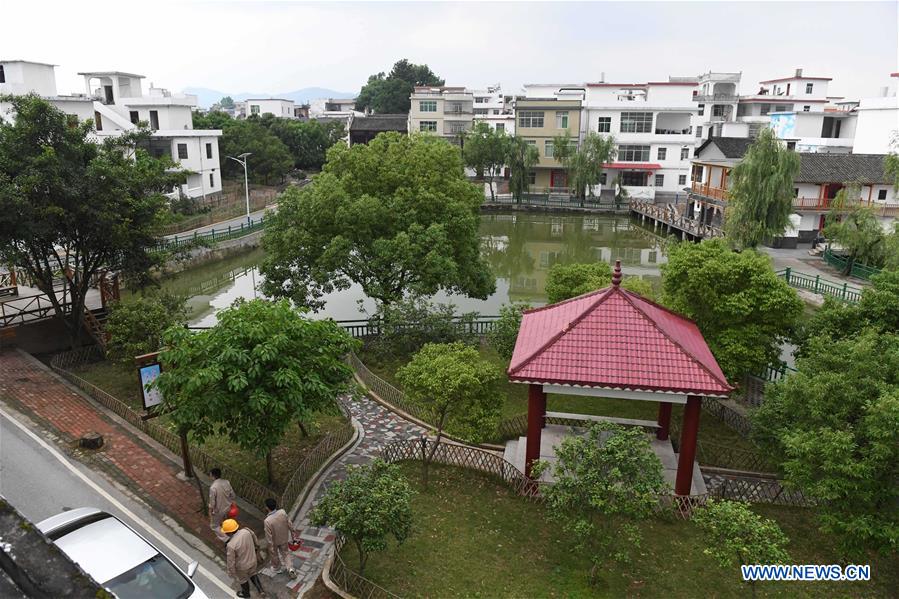All counties in east China's Jiangxi cast off poverty
The last seven poverty-stricken counties in east China's Jiangxi province, an old revolutionary base, have been removed from the country's list of impoverished counties, the provincial poverty relief office announced Sunday.
The last seven poverty-stricken counties in east China's Jiangxi province, an old revolutionary base, have been removed from the country's list of impoverished counties, the provincial poverty relief office announced Sunday.

File photo taken on May 20, 2019 shows a view of Tantou village in Zishan town of Yudu county, east China's Jiangxi province. [Photo/Xinhua]
This marks that all 25 impoverished county-level regions in Jiangxi have shaken off poverty, amid the country's efforts to eradicate absolute poverty by the end of 2020.
Sun Guanfa, a native of Tantou village, Yudu county, recalled how life turned from bitter to sweet.
Sun's family was one of the 109 impoverished households in the village. His wife fell ill in 2007, and the family was too poor to afford meat for the Spring Festival, the biggest celebration for most Chinese in a year. "My daughter said she had almost forgotten the taste of meat," with a bitter smile, he said.
As China's economic growth engine shifts from manufacturing to the service sector, industries such as tourism and entertainment welcomed a golden age of development. Jiangxi, capitalizing on its fame as the revolutionary heartland of the Communist Party of China (CPC), embraced a fast-developing opportunity as a popular red tour destination.
Yudu, where around 86,000 Red Army officers and soldiers left for the Long March in October 1934, is under the jurisdiction of the city of Ganzhou, a place where the CPC conducted its early revolutionary activities.
In 2019, a travel agency was founded in Tantou village, and 71-year-old Sun, a Red Army martyr descendant, became a shareholder and tour guide. He also opened a homestay with the help of the local government.
"There's barely an empty bed in my house during peak season. I made 180,000 yuan (about US$25,420) last year," said Sun.
Now the village receives about 350,000 visitors every year.
Meanwhile, the local government has introduced a slew of favorable policies, such as improving rural infrastructure and housing conditions for impoverished households, and providing support in employment and start-ups, to help locals lead a better life.
Seven years ago, there were still 3.46 million people living under the poverty line in Jiangxi, with many having no access to clean water and cement roads.
Now the figure has dropped to 96,000, and the poverty headcount ratio has been reduced from 9.21 percent to 0.27 percent.
But the sudden hit of coronavirus epidemic has posed new challenges to China's campaign to eradicate absolute poverty by hindering the flow of the workforce, disrupting operations and postponing anti-poverty projects.
The local government has therefore rolled out measures to secure employment of impoverished households amid the epidemic. And migrant workers are organized to return to work in a safe and orderly manner.
In a vegetable greenhouse in Wuli village of Ganzhou city, 12 workers are busy weeding and fertilizing the plants.
"We dared not go out to work during the epidemic, and no work means no money," said Qiu Jiazhen, a local resident. "Luckily, the government offered us the job, and I can earn over 3,000 yuan a month without leaving home."
The provincial poverty relief office said it would continue to adopt poverty alleviation measures to prevent people from returning to poverty, and help the remaining poor population escape poverty by integrating resources and providing accurate assistance.

